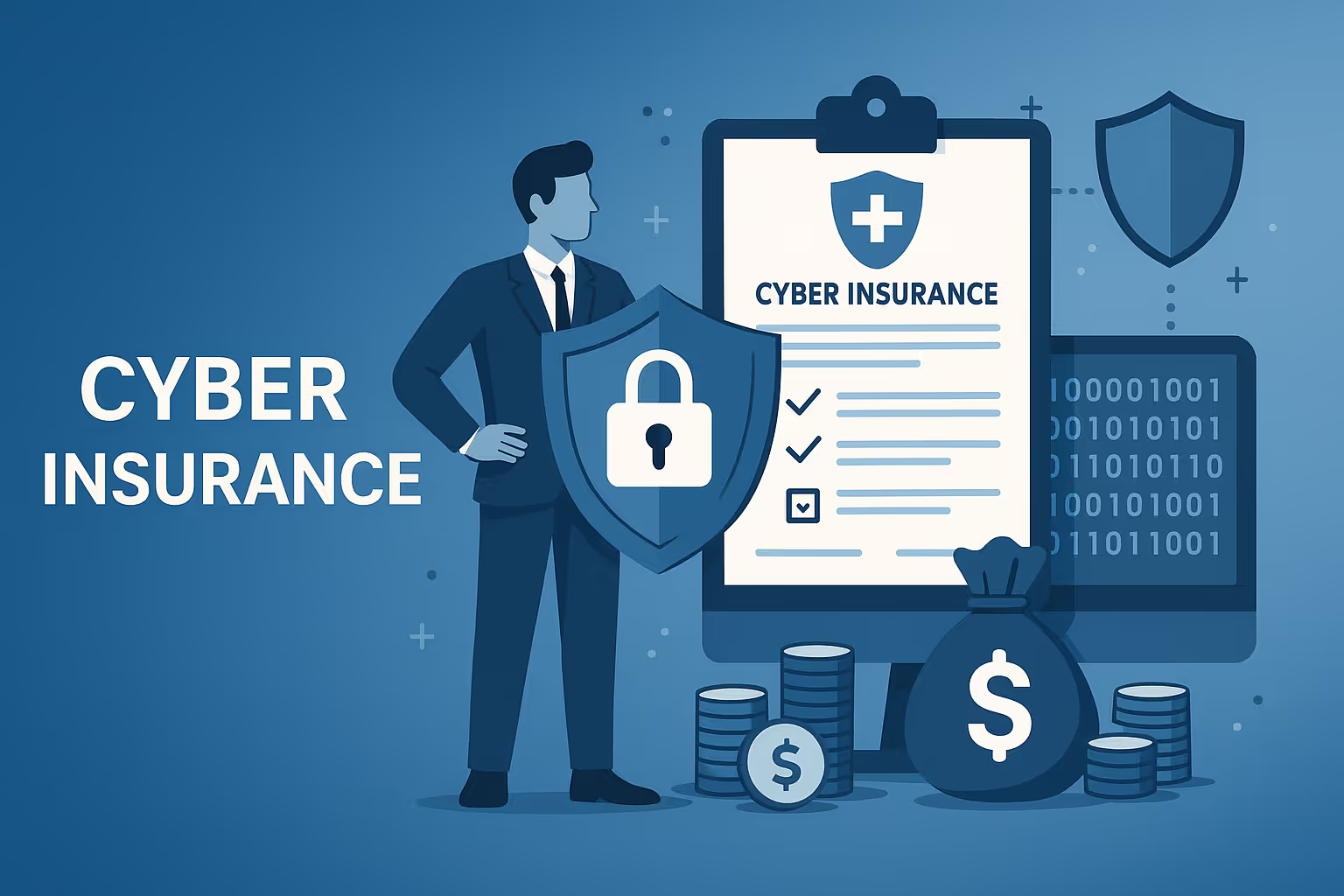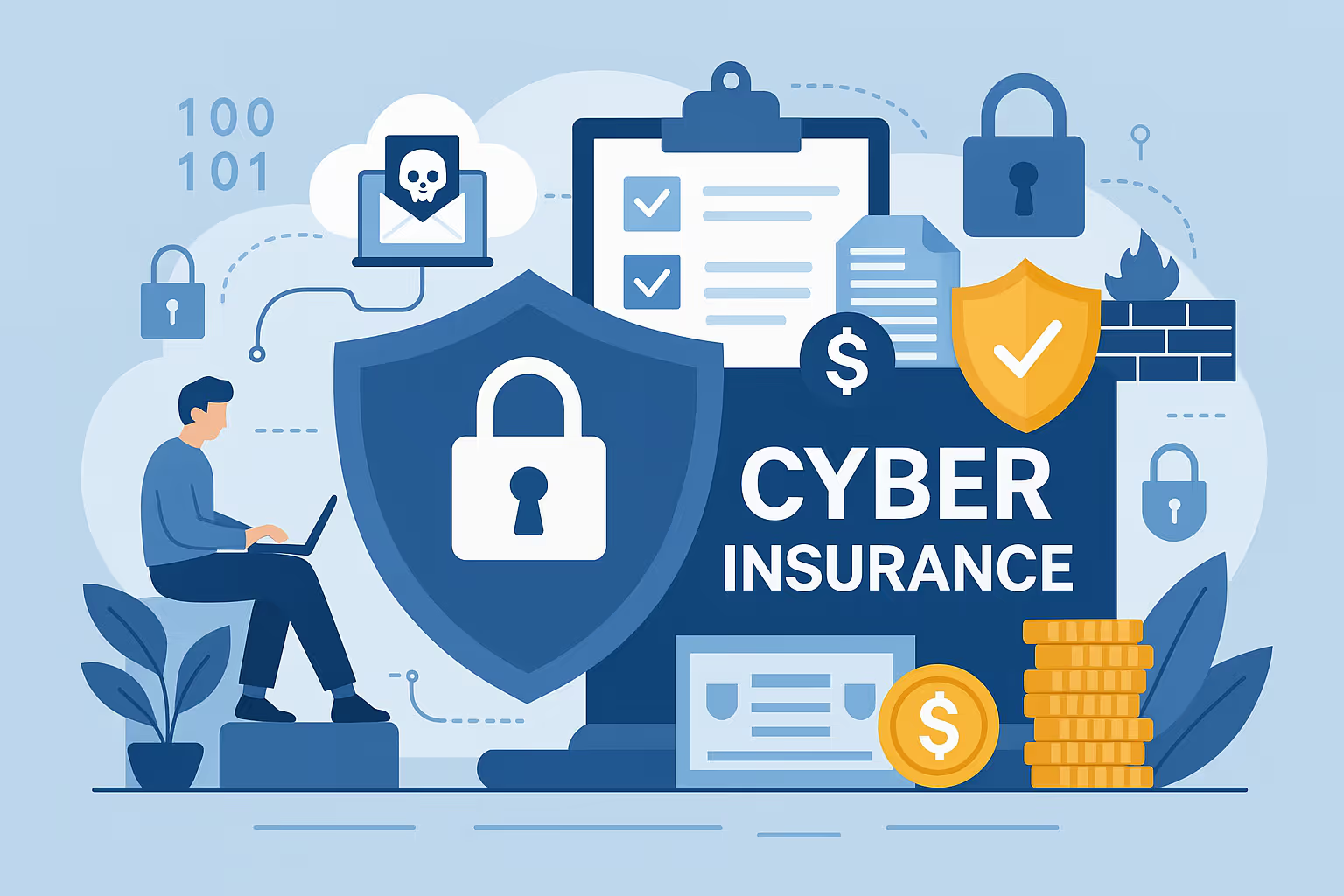
How to get...
Step 1: Conduct a Comprehensive Cyber Risk Assessment For a Retail / E-Commerce company, start by reviewing your current cybersecurity posture. Engage internal teams or external experts to assess vulnerabilities in payment systems, data storage, and customer information. Document existing security measures and any past incidents, as this risk assessment report is crucial for insurers.
Step 2: Gather Essential Documentation and Evidence Compile financial records, IT system inventories, compliance certifications (such as PCI-DSS for payment processing), and any relevant internal cybersecurity policies. This portfolio serves as proof of proactive risk management and is key for underwriting success.
Step 3: Research and Contact Specialized Cyber Insurance Providers Focus on insurers experienced with the Retail / E-Commerce sector. Request quotes and ask about policy options tailored for online businesses that handle sensitive customer data. Use trusted advisory services to compare coverage levels and premiums.
Step 4: Complete the Underwriting Process Submit your documentation to the chosen cyber insurance providers. The underwriting process may involve detailed questionnaires about your security measures and history of cyber incidents. Be transparent and provide all requested evidence to avoid later disputes.
Step 5: Compare Policy Coverage and Finalize Your Choice Review the terms, limits, deductibles, and exclusions of each policy offered. Pay attention to specifics such as coverage for data breaches, ransomware, and third-party liabilities. Use this comparison to determine which policy is best suited for your business needs.
Step 6: Maintain Compliance and Ongoing Risk Management After obtaining your cyber insurance, regularly update your risk assessments and documentation. Keep your security measures current to ensure you remain compliant with your policy requirements and retain favorable underwriting conditions for future renewals.
This methodical approach outlines how to get cyber insurance for Retail / E-Commerce businesses in the United States, ensuring you are prepared at every step—from risk assessment and documentation collection to provider selection and underwriting completion. Following this process helps ensure the best possible coverage for your business in today’s evolving cyber threat landscape.

Who provides...


Why need...
Cyber insurance for Retail / E-Commerce in the United States provides a safety net, covering costs associated with incident response, forensic investigations, legal fees, and customer notifications. This coverage enables businesses to quickly restore operations, protect their customer relationships, and maintain their market reputation while managing the financial consequences of a data breach or cyber attack.
For cyber insurance coverage for Retail / E-Commerce, this component covers the costs associated with data breaches, including notification expenses, credit monitoring, legal fees, and customer remediation measures. It may also provide support for addressing privacy violations resulting from compromised payment systems, customer data, or proprietary information.
This coverage addresses losses stemming from a cyber incident that disrupts the normal flow of revenue. It compensates for income loss and ongoing operational expenses during downtime, including compromised e-commerce platforms, payment processing delays, and supply chain interruptions.
This coverage is designed to defend against cyber extortion threats, including ransomware attacks. It typically includes reimbursement for ransom payments, consulting fees for negotiating, and expenses related to data recovery or system restoration.
This feature covers legal expenses, defense costs, and fines associated with regulatory investigations following a cyber incident. It is especially critical for organizations handling sensitive customer data and complying with laws such as GDPR, CCPA, or PCI standards.
Build Security with OCD Tech That Meets the Standard — and Moves You Forward
Contact Us
Retail/E-Com firms need robust cyber controls. Insurers evaluate risk, compliance & data safeguards. This protects customers & assets.
Implementation of technical security controls such as firewalls, encryption, intrusion detection systems, and secure configuration is critical. Insurers assess the effectiveness of these controls to determine the likelihood of a cyber incident. Strong technical measures lower your risk profile, which may favorably impact underwriting decisions and result in more competitive premiums for Retail / E-Commerce companies.
Compliance evidence, including adherence to standards like PCI DSS and other relevant regulations, is another key requirement. Insurers check that companies align with mandatory and best-practice frameworks. Such compliance minimizes potential liabilities and enhances resilience against attacks. Meeting these regulatory requirements can streamline the underwriting process and is often reflected in improved eligibility and reduced rates.
Documented incident response plans and a clear breaching history are scrutinized during the underwriting process. Insurers want to know how a company has dealt with past incidents and its readiness to manage future threats. A proactive response strategy demonstrates reduced risk, which can lead to more favorable coverage terms and lower premiums in the Retail / E-Commerce sector.
Rigorous evaluation of third-party and vendor security practices is essential. Retail / E-Commerce companies often rely on external service providers for payment processing, logistics, and IT services, making vendor risk management a focus area. Insurers require evidence of thorough risk assessments and contracts with clear security mandates for vendors. Effective third-party risk management helps mitigate supply chain vulnerabilities, thereby positively influencing underwriting outcomes and premium calculations.
Secure Your Business with Expert Cybersecurity & Compliance Today
Contact Us


Differences by State...
In the United States, cyber insurance for Retail / E-Commerce is influenced by varying state regulations, which directly impact coverage, premiums, compliance obligations, and risk management. Understanding these differences is essential for organizations in the Retail / E-Commerce sector when evaluating, purchasing, and maintaining their policies.
Every state’s legal landscape adds layers of complexity. For organizations in Retail / E-Commerce, closely evaluating state-specific legislation and insurance policy details, particularly in leading states like New York, ensures that both regulatory compliance and robust risk management practices are achieved. This attention to detail ultimately supports business continuity and enhances resilience against cyber threats.

Compliance & Frameworks...
NIST Cybersecurity Framework (NIST CSF): This framework provides a structured approach to identify, protect, detect, respond, and recover from cyber threats. For cyber insurance for Retail / E-Commerce companies, following NIST CSF demonstrates proactive risk management and can lead to more favorable underwriting and reduced premium costs.
ISO 27001: Recognized globally, ISO 27001 defines best practices for implementing an Information Security Management System (ISMS). Retail and e-commerce businesses that achieve ISO 27001 certification show a commitment to information security, often resulting in tailored cyber insurance policies and lower premiums.
State-Level Regulations: Mandates such as NYDFS (New York Department of Financial Services) and the CCPA (California Consumer Privacy Act) impose specific data protection and breach notification requirements. Compliance with these rules is vital as insurers review adherence to these regulations to assess risk levels and determine policy pricing.
Industry-Specific Regulations: When retail stores or e-commerce firms handle sensitive data like healthcare information or financial details, they may also need to comply with frameworks such as HIPAA (for health data) or GLBA (for financial data). These regulations ensure that customer information is secured, influencing both underwriting decisions and premium costs.
Ultimately, maintaining compliance with these frameworks and regulations not only protects customer data but also positions Retail / E-Commerce companies to secure optimized cyber insurance policies and competitive premiums in the dynamic U.S. market.

Audit. Security. Assurance.
IT Audit | Cybersecurity | IT Assurance | IT Security Consultants – OCD Tech is a technology consulting firm serving the IT security and consulting needs of businesses in Boston (MA), Braintree (MA) and across New England. We primarily serve Fortune 500 companies including auto dealers, financial institutions, higher education, government contractors, and not-for-profit organizations with SOC 2 reporting, CMMC readiness, IT Security Audits, Penetration Testing and Vulnerability Assessments. We also provide dark web monitoring, DFARS compliance, and IT general controls review.
Contact Info
.svg)
OCD Tech
.svg)
25 BHOP, Suite 407, Braintree MA, 02184
.svg)
844-623-8324
.svg)
https://ocd-tech.com
Follow Us
Videos
Check Out the Latest Videos From OCD Tech!
Services
SOC Reporting Services
– SOC 2 ® Readiness Assessment
– SOC 2 ®
– SOC 3 ®
– SOC for Cybersecurity ®
IT Advisory Services
– IT Vulnerability Assessment
– Penetration Testing
– Privileged Access Management
– Social Engineering
– WISP
– General IT Controls Review
IT Government Compliance Services
– CMMC
– DFARS Compliance
– FTC Safeguards vCISO